Culinary art
HQ92+35 Dobrich, Bulgaria
+359 885346297
Similar Tours
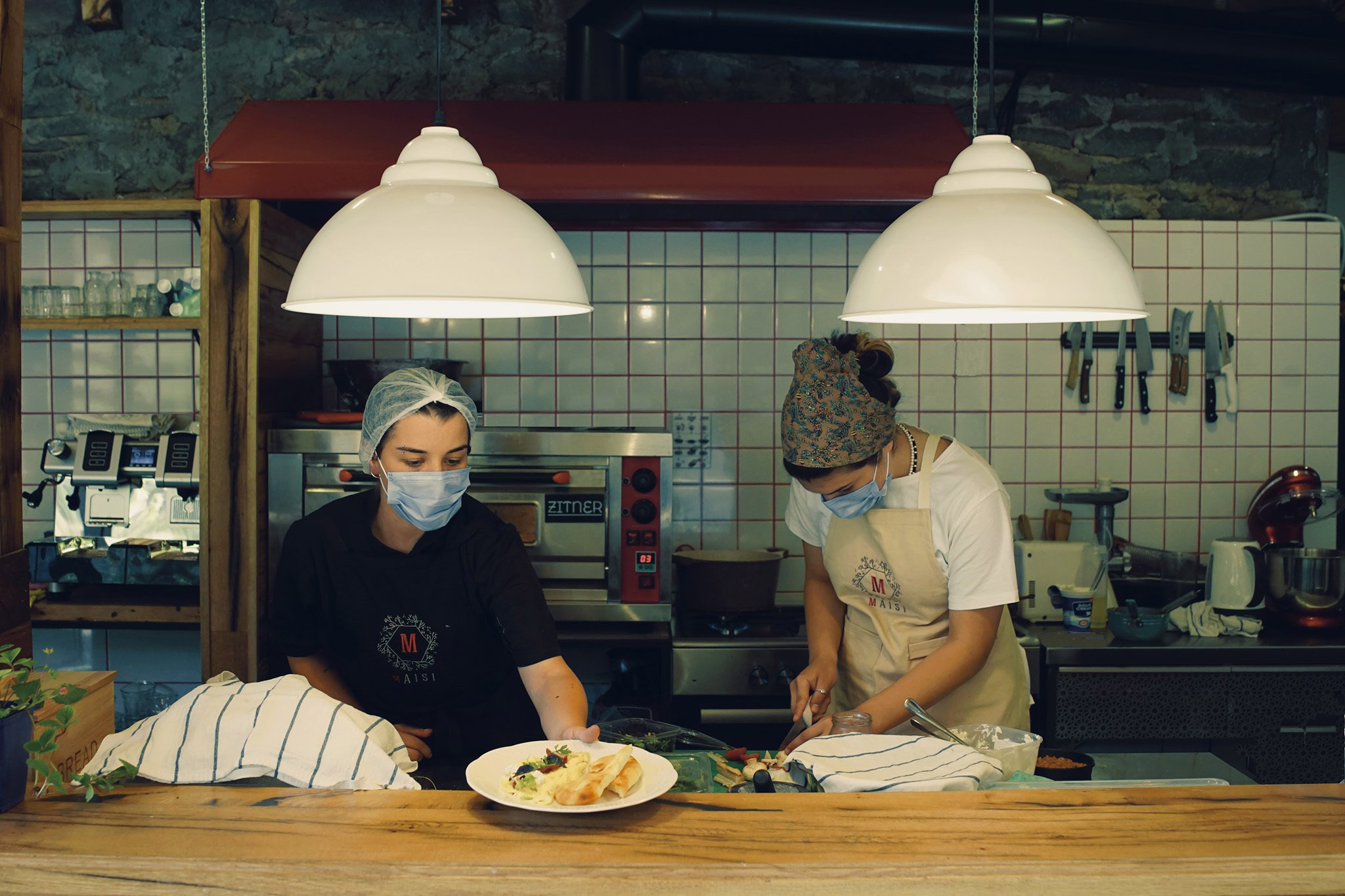
Khevi gastronomic master class
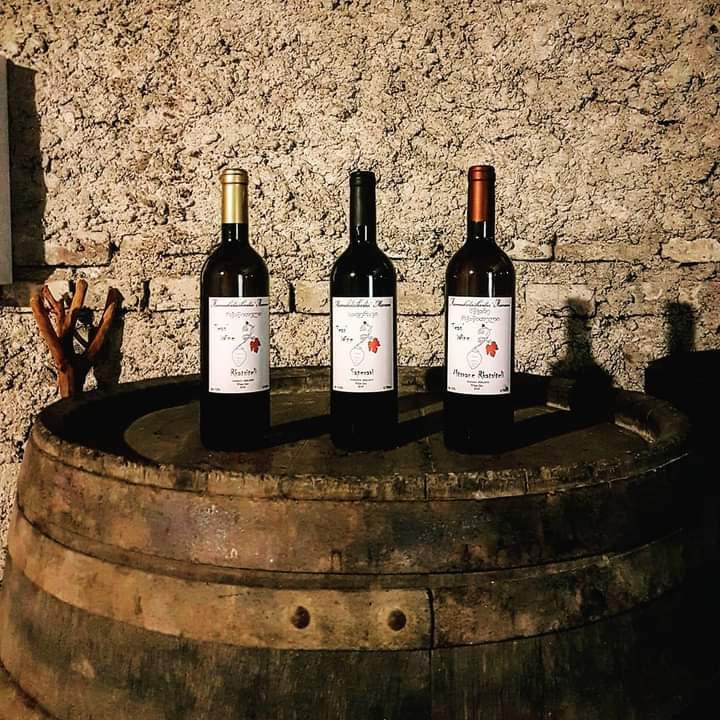
Kurdgelauri marani

Master class of restored recipes
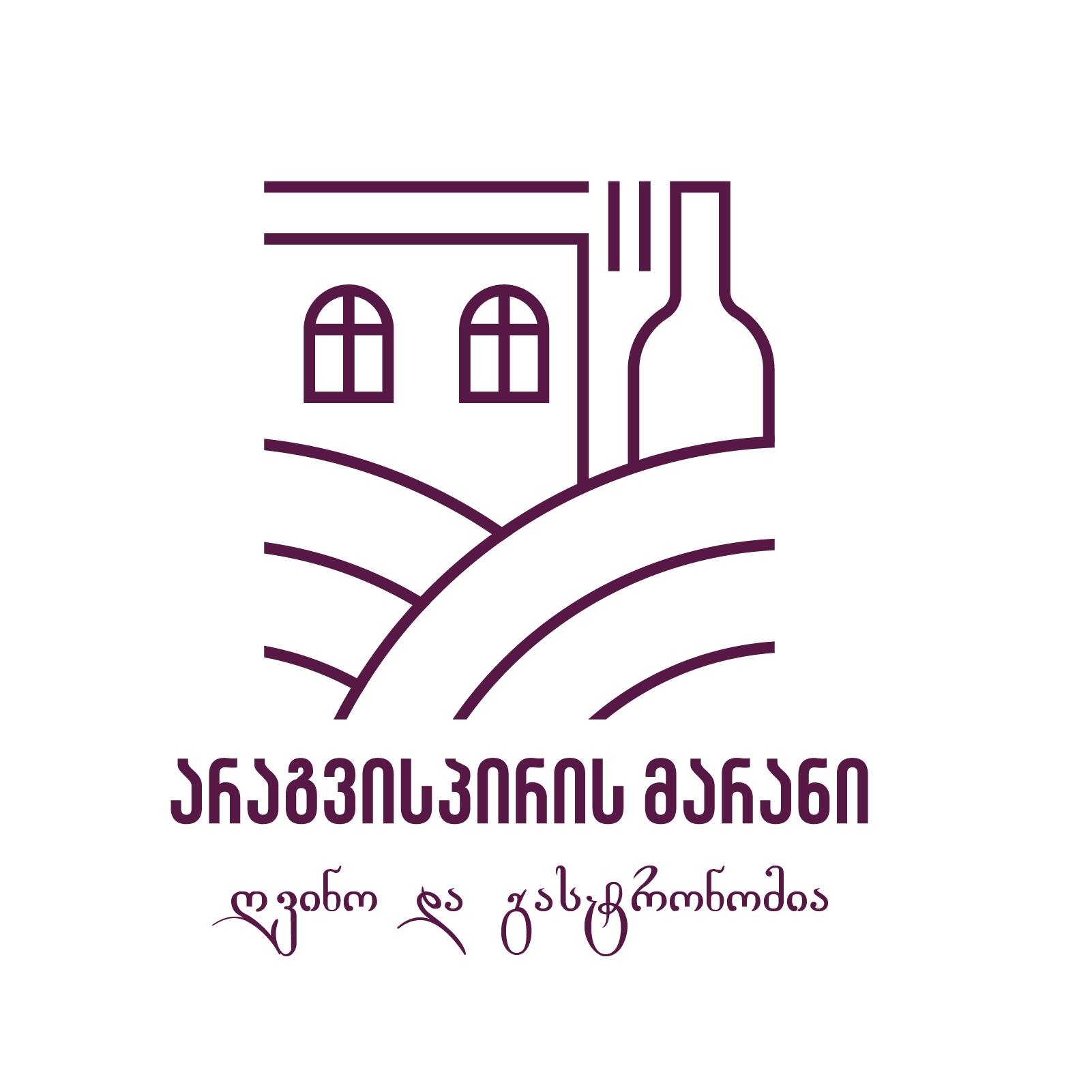
Aragvispiri wine cellar
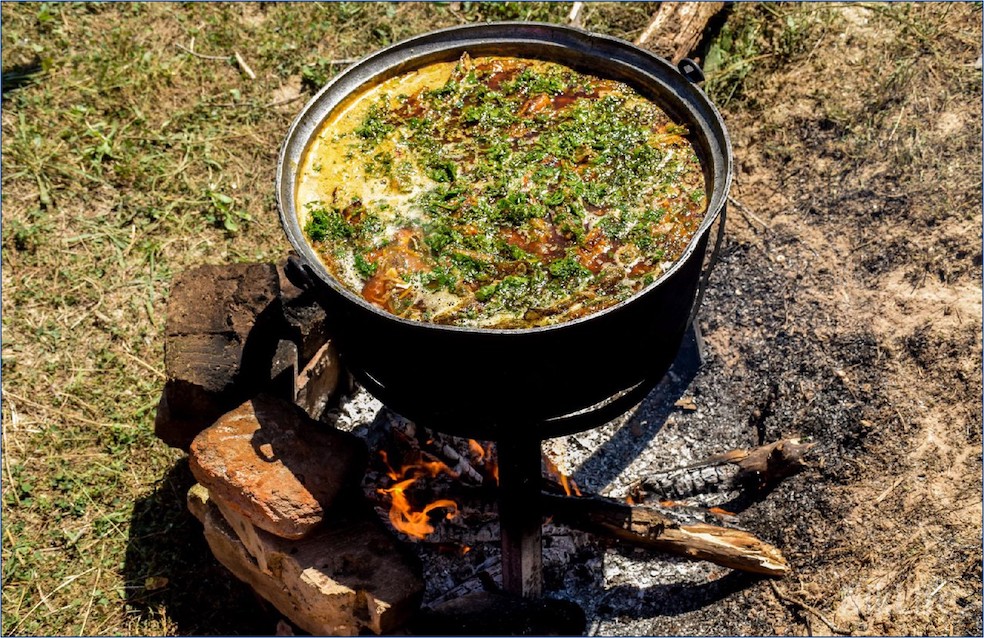
Technology of cooking borscht with goby fish
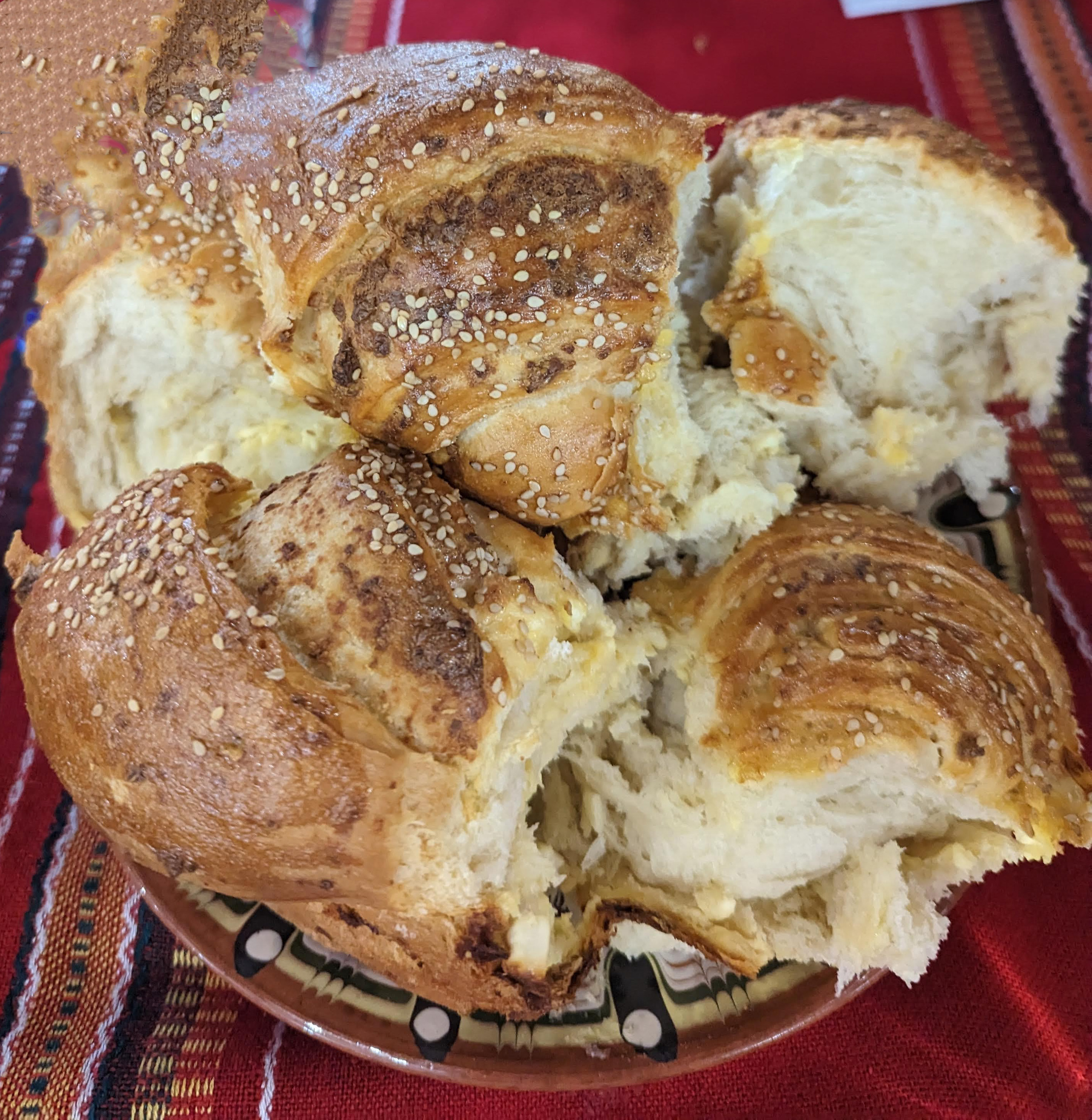
Festival "On the path of bread in Dobrudja"
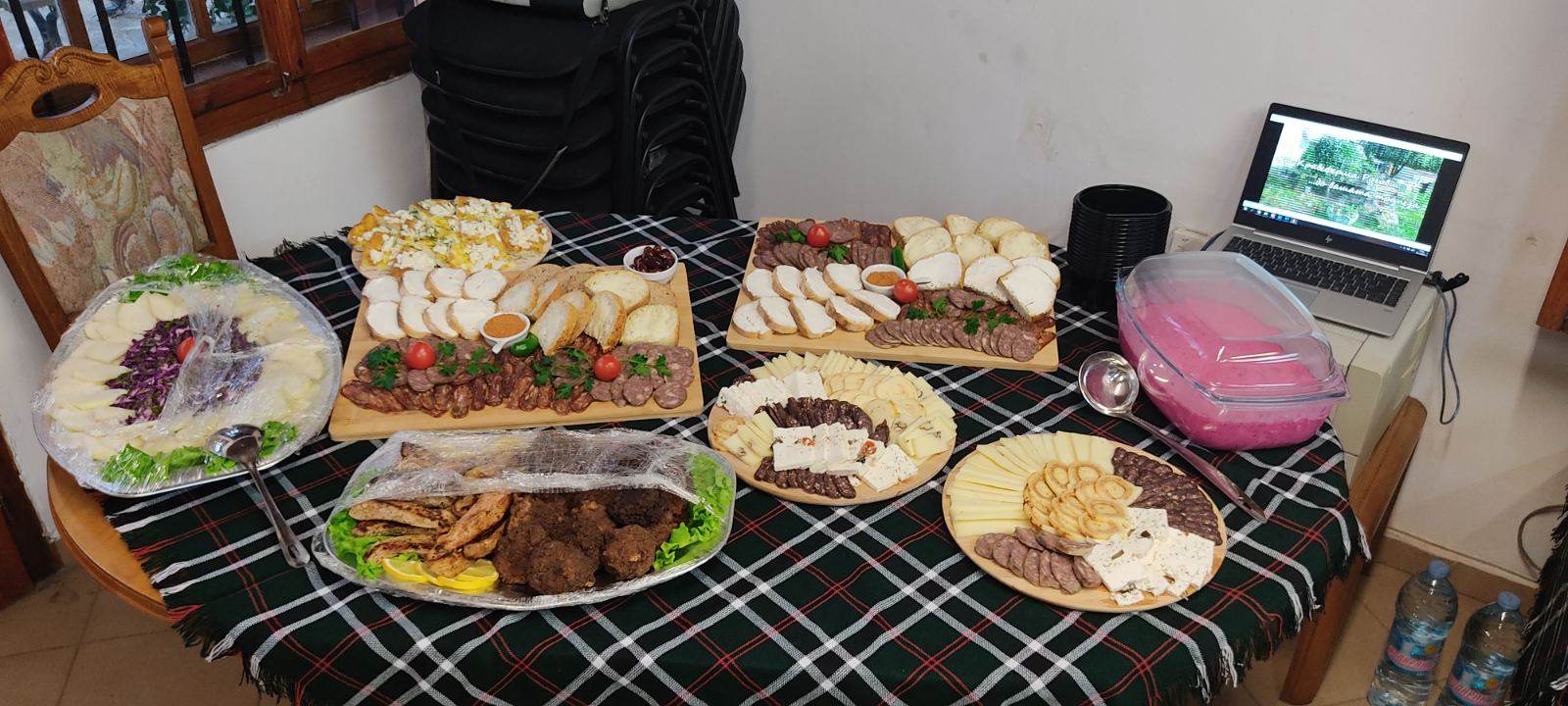
Small Farms Tour
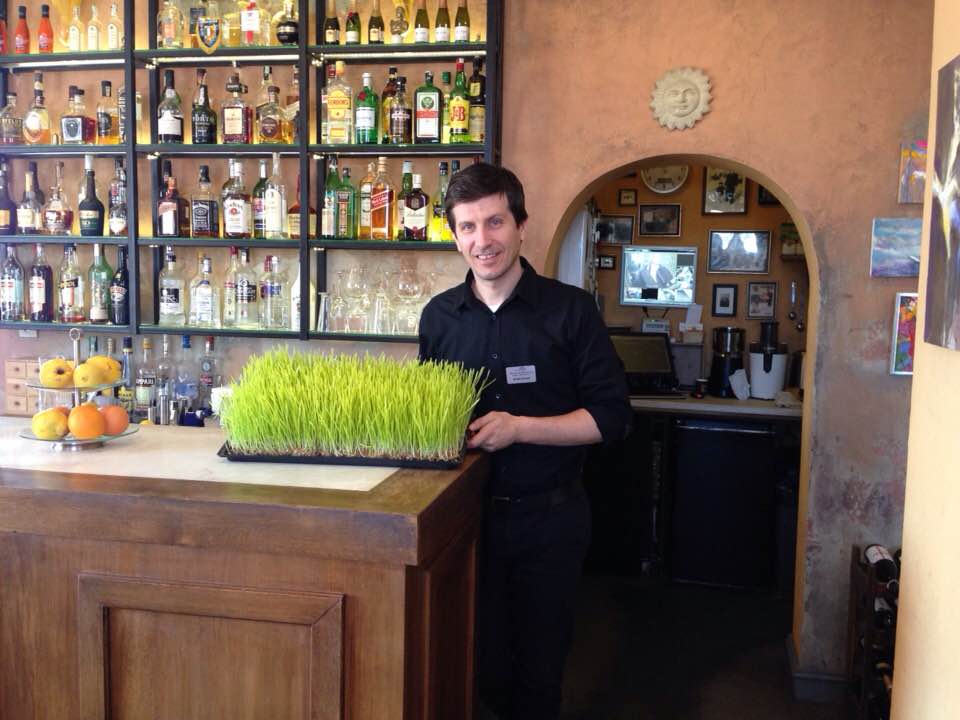
Wheatgrass Health Seminar
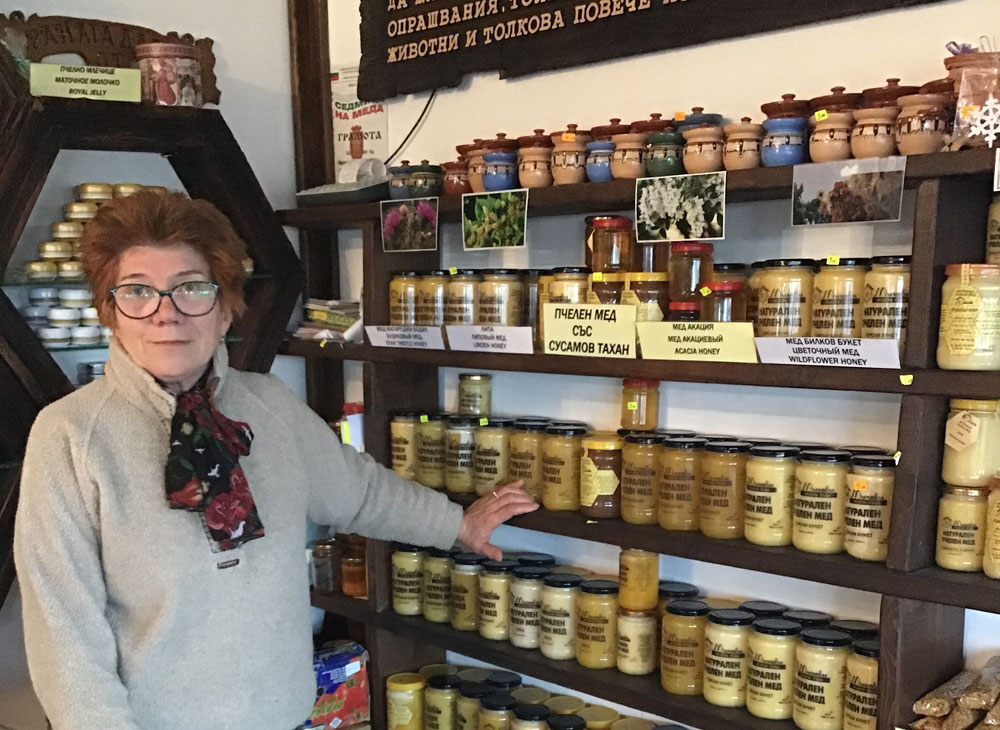
Mihovi honey house
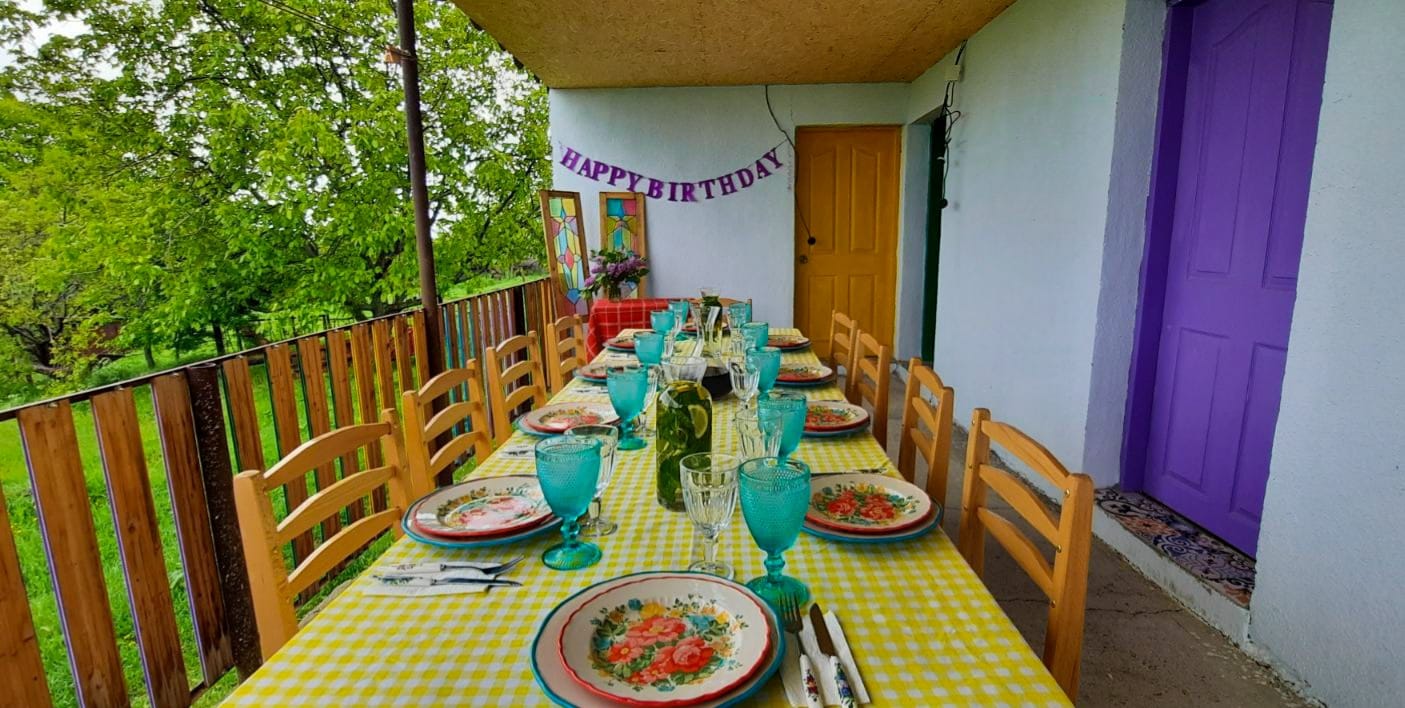
Gastronomic master class

Harvest party
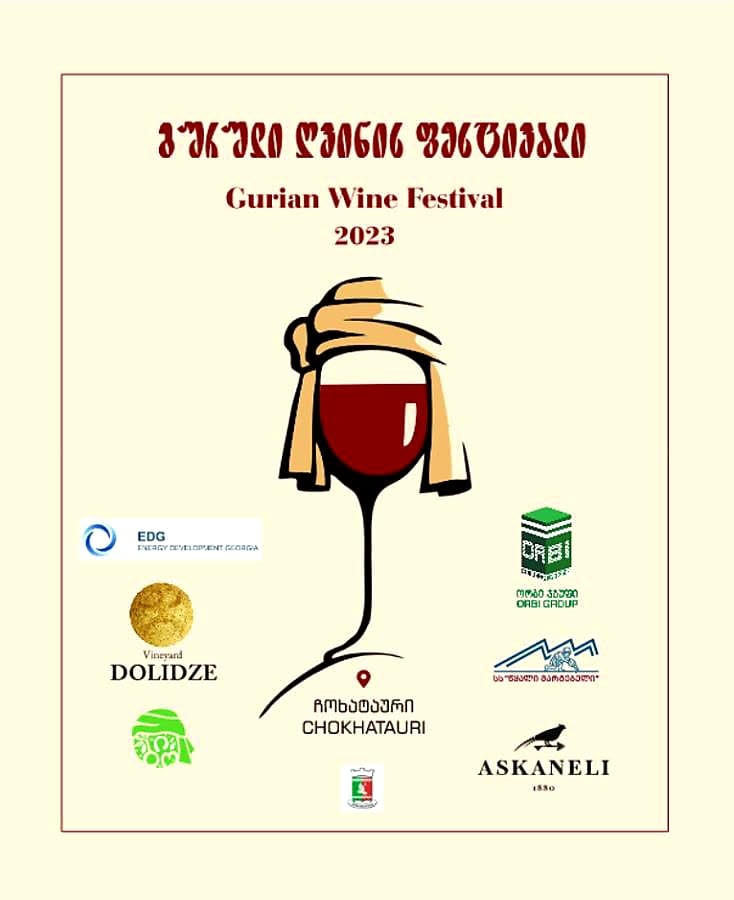
Gurian Wine Festival 2023
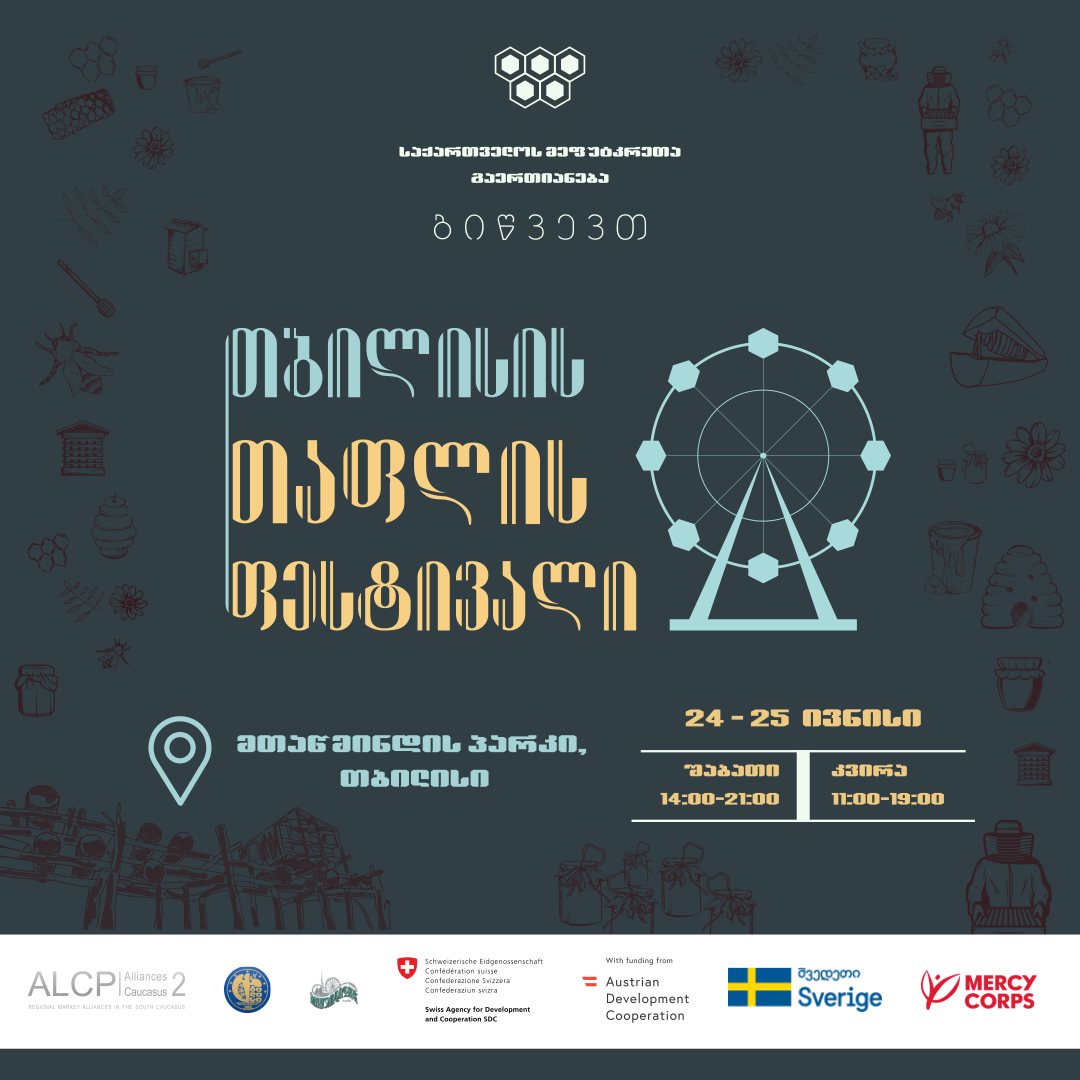
Tbilisi Honey Festival
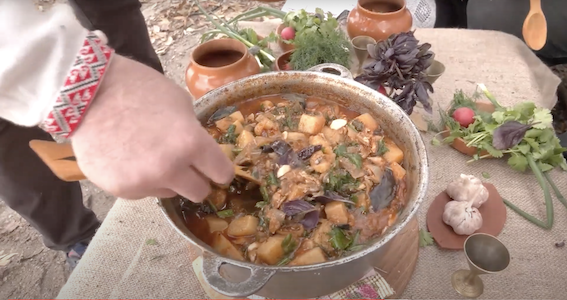
Tourist magnets of Vitovskyi district
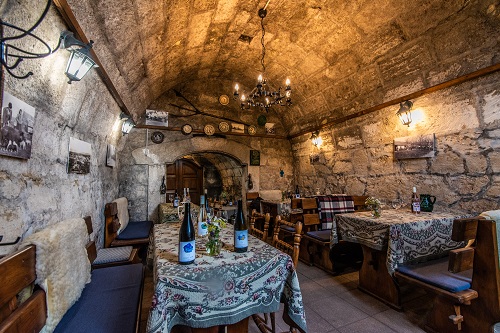
VIZI WINERY
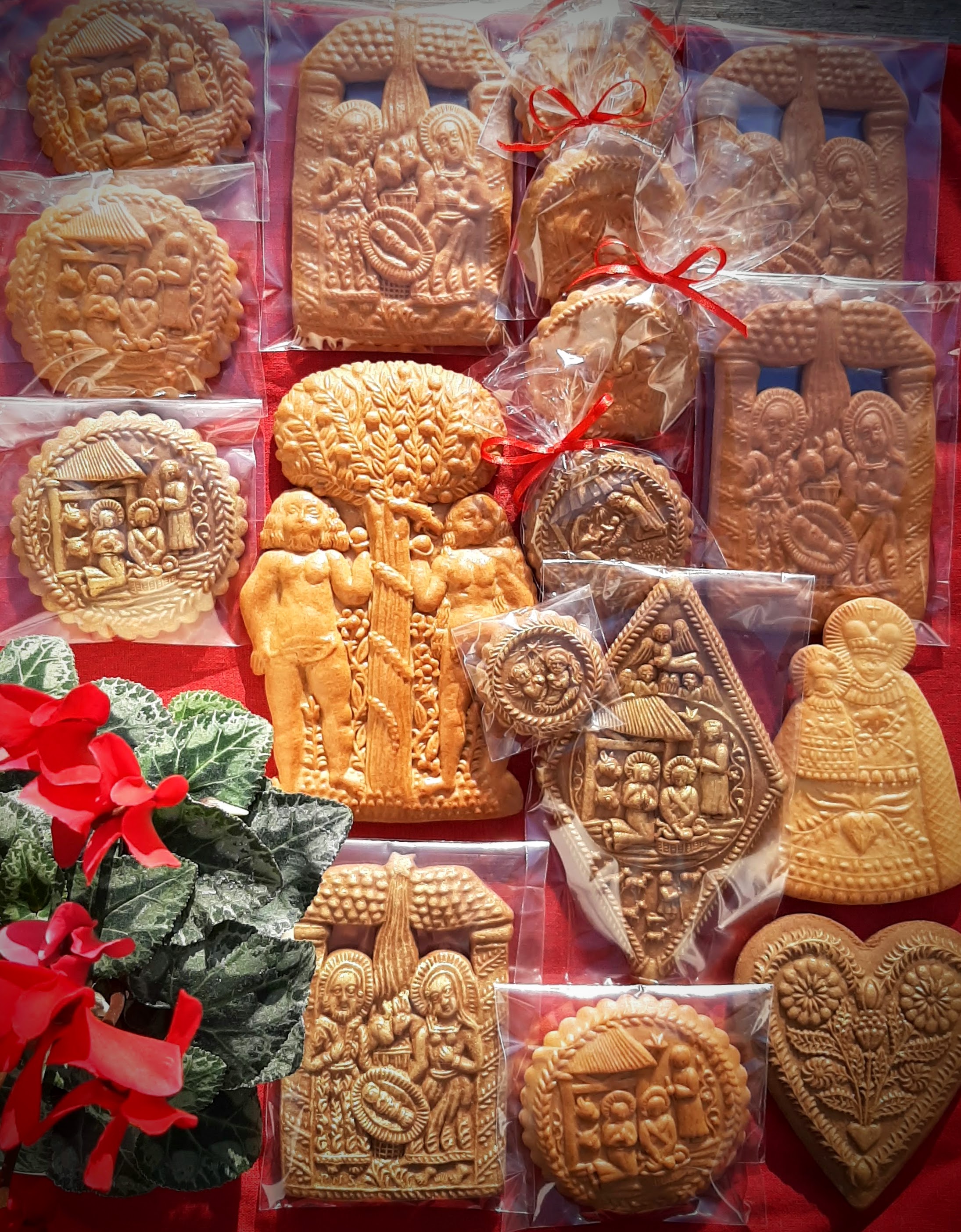
Gingerbread making with carved honeycake moulds
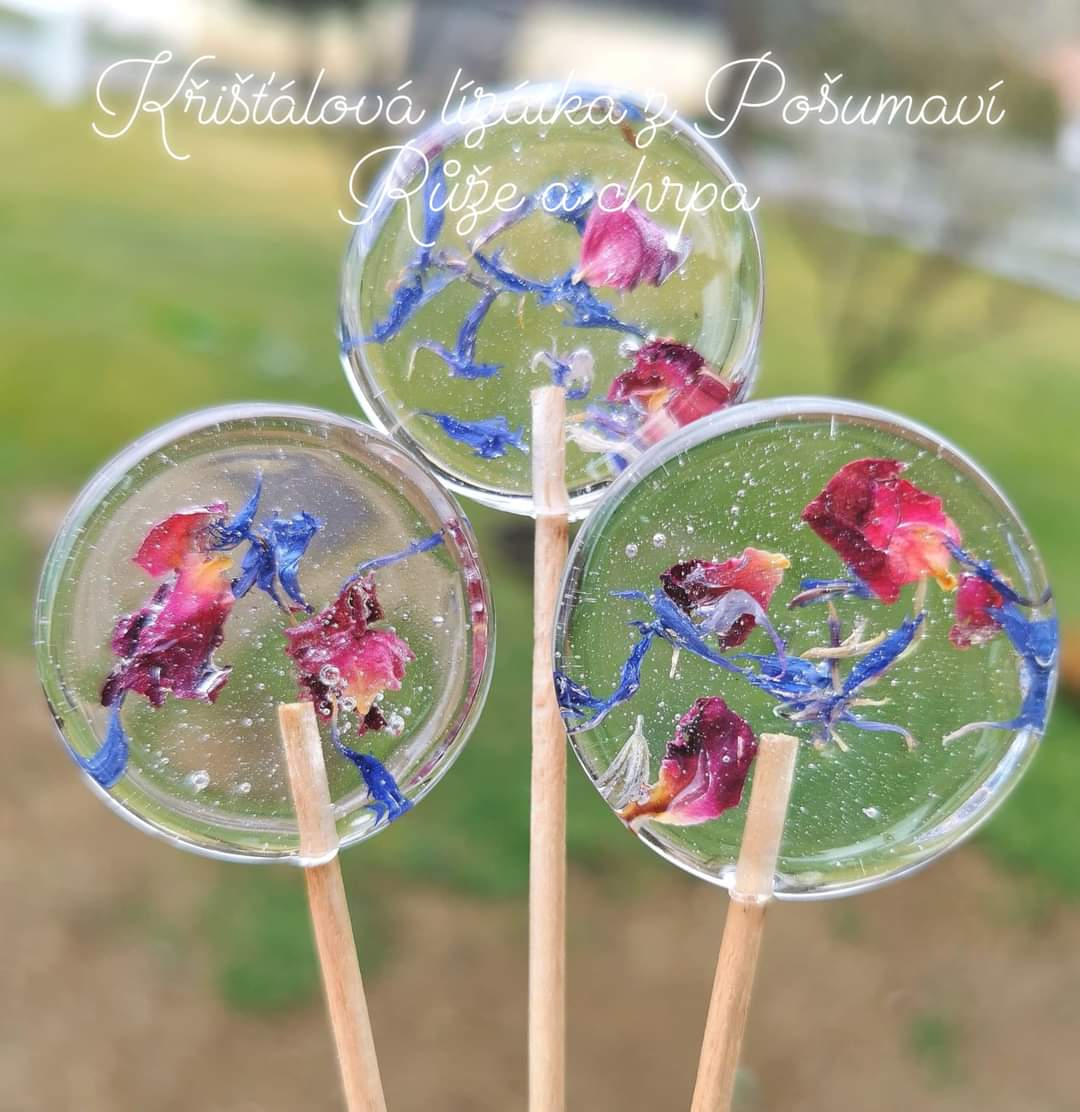
Handmade candy lollipops
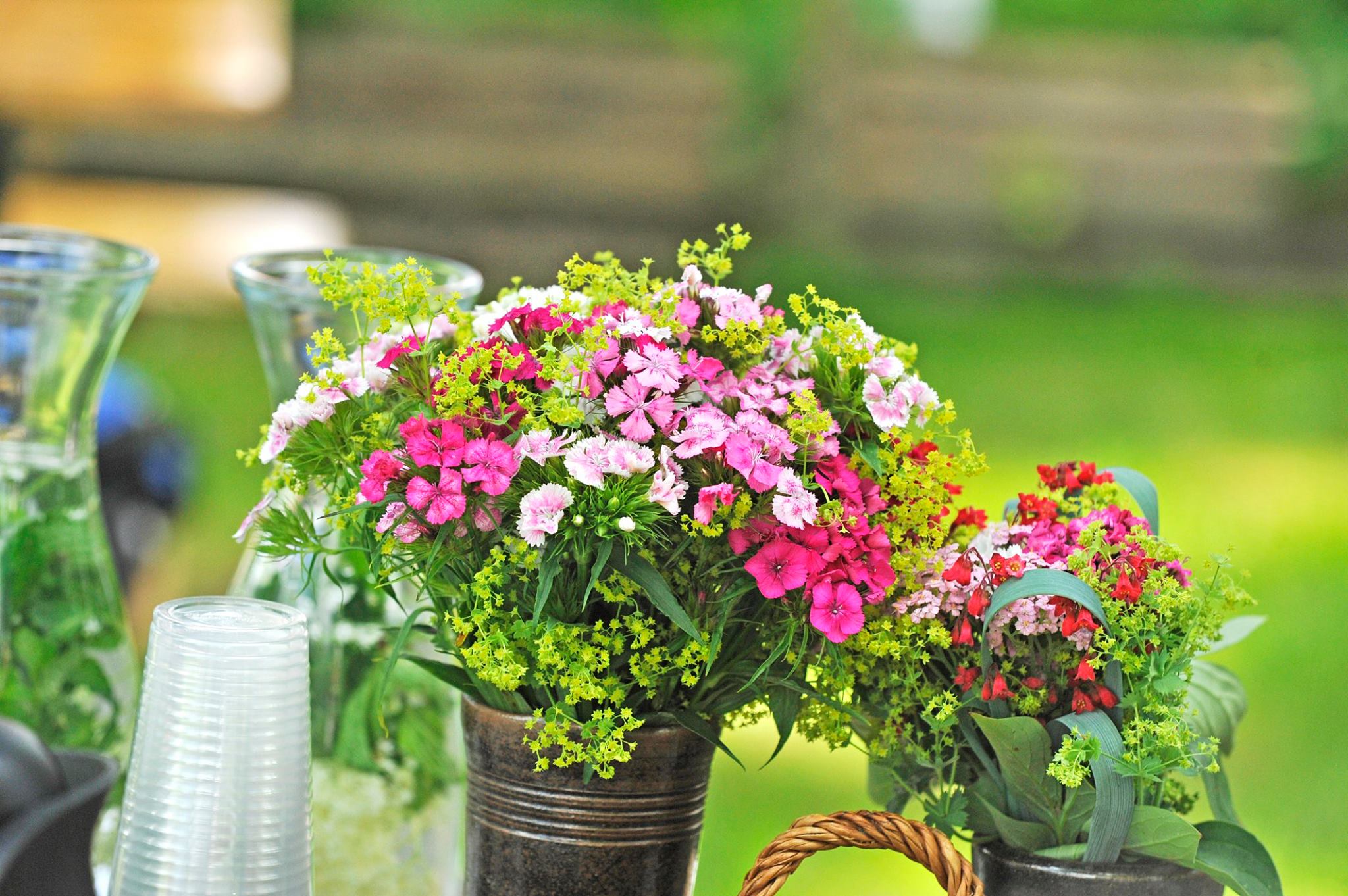
Ky.By Garden Chlumany
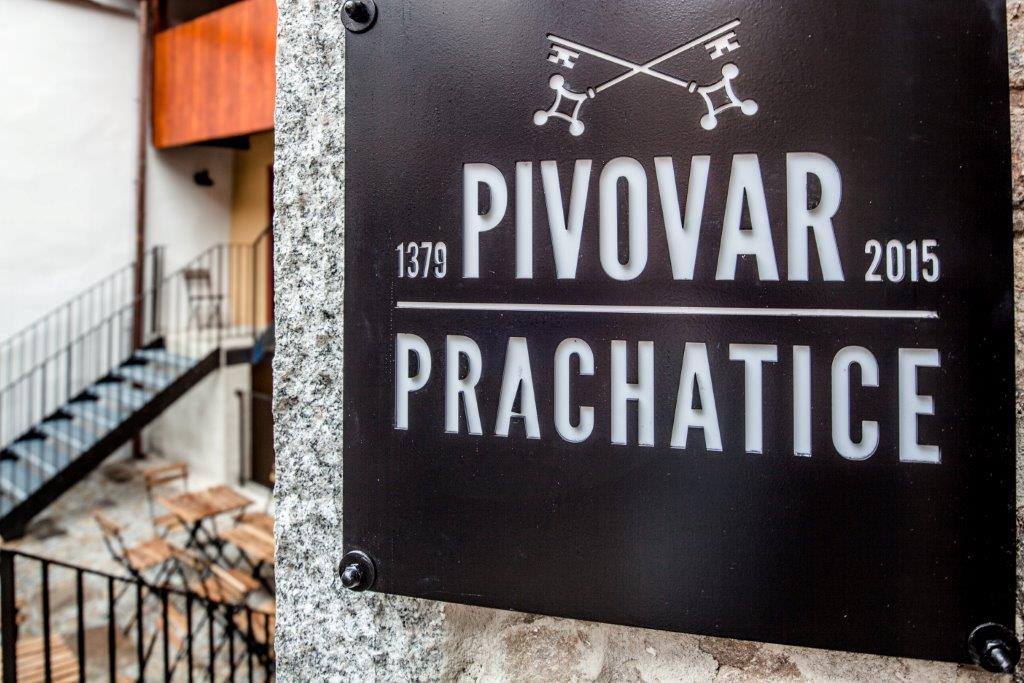
Guided tours of the microbrewery
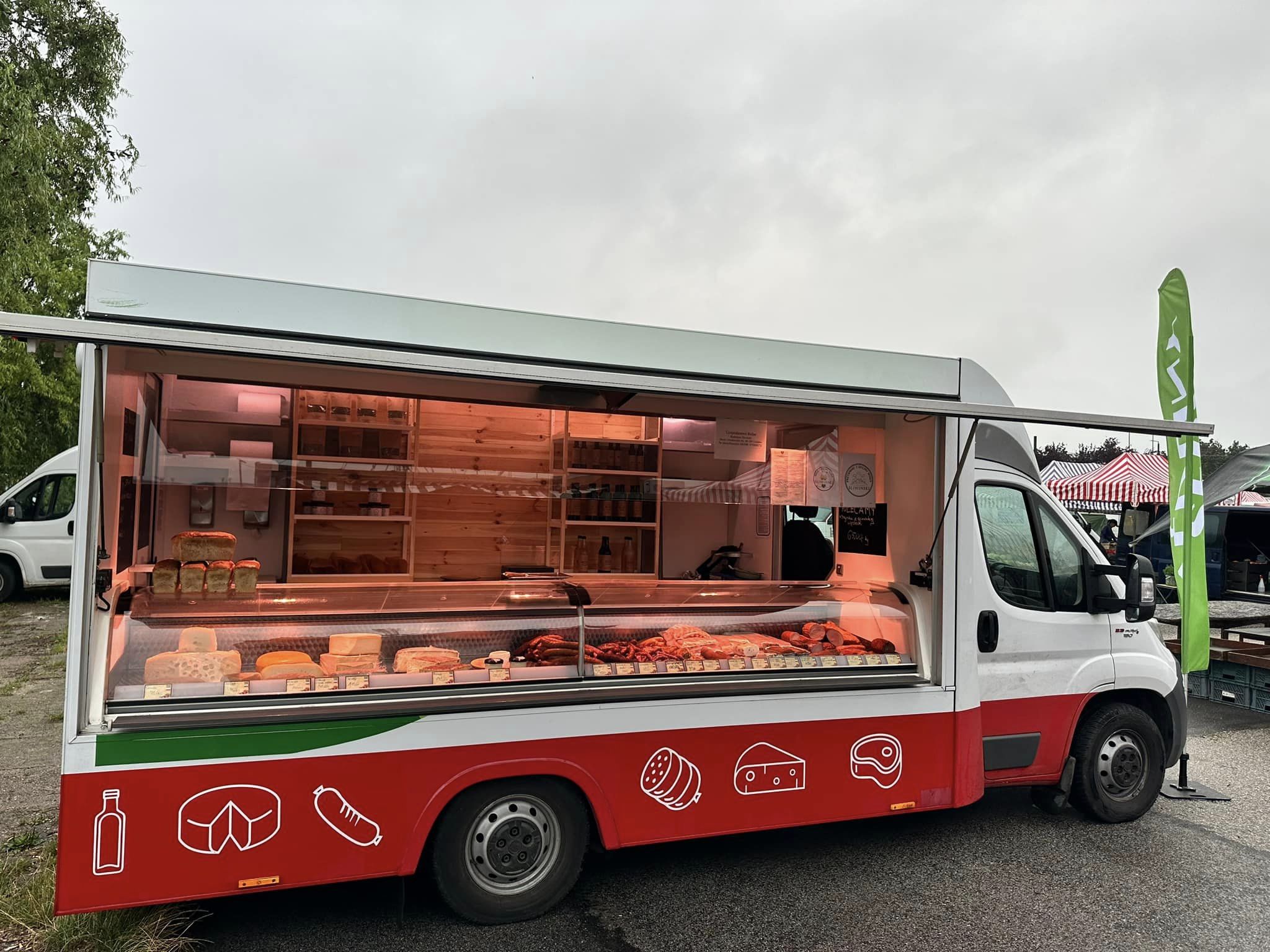
Wróbel Ecological Herbal Farm

Cultural-mythological tour of the village and culinary master class in Gudamakari
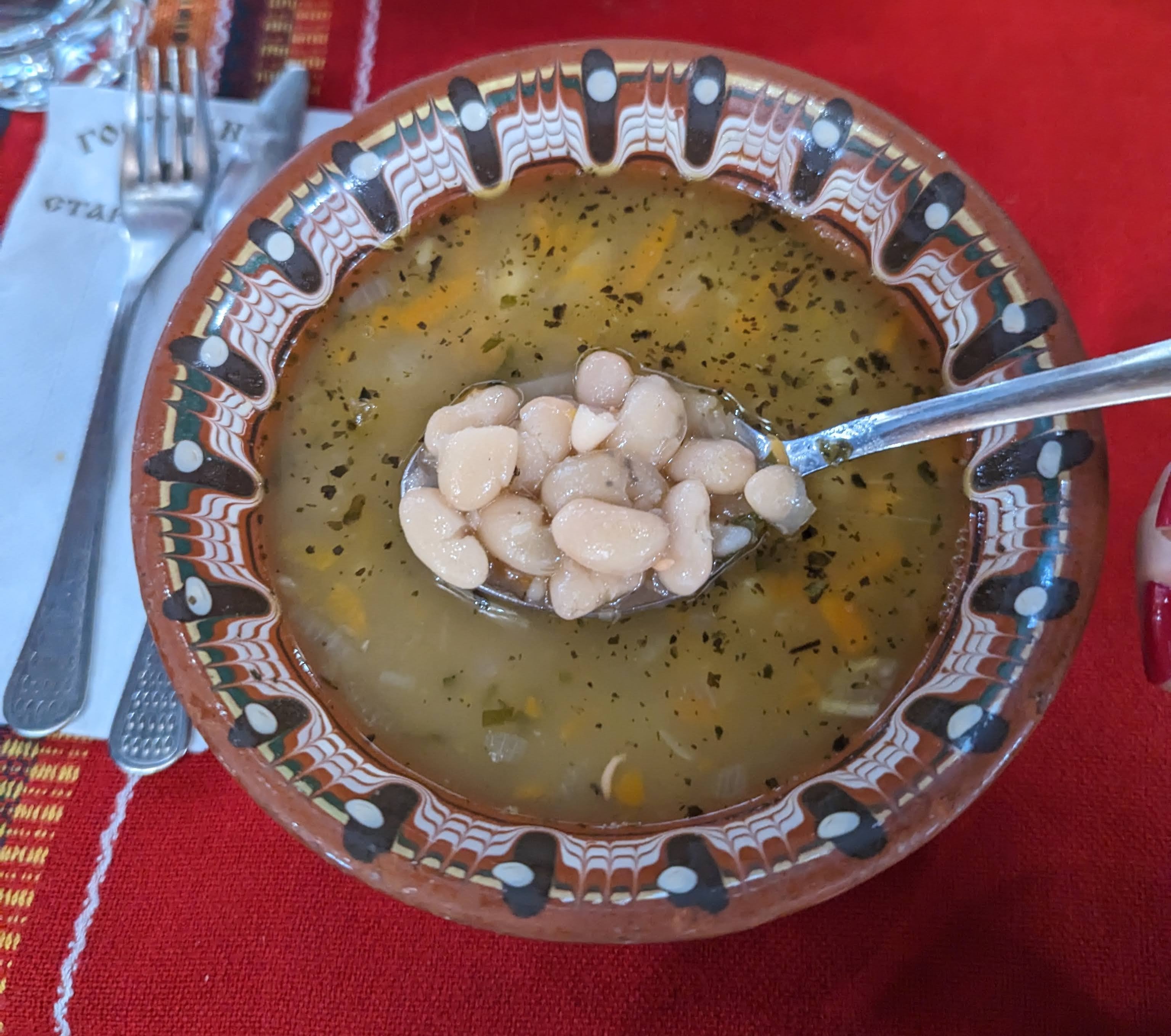

Signboard

Parking

Meals

Drinks

Free Wi-Fi
Available Services

Cash payment

Money transfer
10
People's Community Center "Kiril and Methodius - 1941" is located in the village of Efreitor Bakalovo, Krushari municipality, Dobrich region. The chairman of the community center is Ayshe Salim, who is particularly active and captivates everyone with her interesting ideas. One of them is to build an ethnographic exposition of the people who live here - Turks and Tatars in the neighboring village of Onogur - in the community center. Their culinary activities are also a very positive initiative, especially for tourists, whose number has been increasing recently given the visits to the rock hermitages and monasteries along the Dry River.
The tourist product is a culinary tasting, organized by a culinary group at the local community center, which prepares 7 local dishes at the request of tourist groups in order to taste local food produced according to traditional recipes. The product includes an organized one-day tour around the village of Efr. Bakalovo, which ends with a tasting of traditional local cuisine. The offered product "Culinary Studio "7 of 7"" combines cooking as a form of creative tourism and aims to contribute to the popularization and preservation of local dishes, The product can enjoy a good reception because it is complemented by the possibility of being included as part of tourist packages of organizations that organize one-day excursions to Suhodolieto and the Rock monasteries. An overnight stay in the year-round guest house "Han Telerig" in the village of Telerig, 5 km away, can be added to it. from the village of Efr. Groceries. This objective fact can be used to increase the length of stay of tourists in the municipality, resp. increasing local revenue from overnight stays, dining, shopping. An advantage of the idea is that the surroundings of the village of Efr. Bakalovo offer a very interesting tour among natural and cultural and historical sights. Here are some of the oldest rock monasteries in Europe, known as Gjaur Evleri. Carved into the rocks along the Dry River, they give the adventurous tourist, in addition to enjoying a picturesque natural view, the opportunity to learn about the thousand-year-old history of Dobrudja. Directly below them is the Suha Reka canyon, part of the Suha Reka Protected Area, rich in numerous protected species of plants and birds. In this context, the place is unique, as it can present in a synthesized one-day tour the history, nature and culture of ancient Dobrudja and add the product "Culinary Studio "7 of 7"" to them, completing the experience with the opportunity to "taste" in place. The way of presentation, promotion and demonstration of the product implies innovation by including the following elements: Tasting of traditional culinary specialties is expected to provoke demand and further promote the region; Adherents of good food and local specialties will be able to taste a rich variety of seasonal feasts, drinks and sweets, prepared and served by the hands of local women. Through a site visit and demonstrations of local traditional cuisine, an emotional connection between past and present is created and the residents of the village of Efr are given the opportunity. Bakalovo to preserve for future generations traditional tastes and recipes, part of their identity and cultural belonging. Preserving and spreading the knowledge of traditional recipes and ways of preparing local food can also become an incentive for the few remaining producers of local, authentic varieties of fruits and vegetables, dairy and meat products, so that they take care of providing the products for those dishes characteristic of the region. This product is complemented by two small ethnographic expositions of traditional lifestyle and costumes - in the local community center there are two corners of Bulgarian and Turkish ethnic groups. In this sense, the community ethnographic gatherings can be a starting point for tourists, who will look at items and authentic items from the life and lifestyle of the local ethnic groups from many years ago, before taking the paths of Suhodolieto. The experience of the community center in the village of Efr. Bakalovo could be multiplied in the neighboring villages, and for each of them it is possible to extract the most attractive and specific cuisine of the different ethnicities and to create a partner network of "culinary points ', which tourists would like to visit and get involved in the preparation of 'living food'. In addition to being passive observers, tourists will also be attracted as "participants" in a culinary journey. In this sense, the main idea of the product is to offer the tourist to participate in the process of preparing the dishes. The active involvement of the tourist from the beginning to the end product "tasting 7 dishes" would only add value to the whole emotion of the "travel - explore - return" process. In addition to the local community, the "7 of 7 Culinary Studio" product will also be presented to the tourism business in the region. This will be a prerequisite for optimizing local production and improving the quality of the tourist product through the added value of organic traditional agriculture and animal husbandry. CULTURAL HERITAGE The turbulent historical fate of the region and the large migration movements in Dobrudja determined the extraordinary diversity of ethnographic groups of Bulgarians, Turks and Tatars, who for several centuries coexisted in close cultural and everyday contact, interacting with each other, intertwining and preserving their traditions. They build a material and spiritual culture that is uniform in its Bulgarian basis and colorful in its ethno-demographic specificity. Near the villages of Balik, Onogur and Efreitor Bakalovo in Dobrudja, along the river Sukha, there are several rock monastery complexes built in the rocks of the canyon formed thousands of years ago in the otherwise flat Dobruja field. One of the largest resettlement of Tatars in the lands of today's Bulgaria took place around the Crimean War. Today, in the village of Onogur, the population is entirely composed of the descendants of these Crimean Tatars, who continue to preserve the traditions and customs of their ancestors. Every year the small community celebrates the Tepresh holiday, which is identical to the Christian St. George's Day, then a sacrifice is made. Today almost depopulated, the population of the village of Onogur is about 30 people. Even though there are few locals, they will treat you with the traditional Tatar feasts - shuiberek, bailavar, oguzborek, kabete and katlama. In the village of Corporal Bakalovo, the authentic cuisine of the Turkish ethnic group has been preserved to this day. In the "7 of 7" culinary studio, the typical Turkish wedding dishes are prepared. Whether they marry from a poor or rich family, the dishes are always seven in number, and this has been the case for thousands of generations to this day. The prepared seven dishes are distributed to all the houses and the whole village to share in their celebration. The symbolism of donating and distributing food among Muslims and on other religious holidays is part of their culture. Donating food is a symbol of unity, mutual aid, tolerance, blessing and friendship, regardless of religious and ethnic differences. The idea of the cultural product is for the guest or tourist to take part in several directions - excursion, tasting of local dishes and authentic folklore, by popularizing traditions and customs that are in danger of being forgotten. In a culinary studio, köbete, güzleme and cheburek will be kneaded and baked, a wedding soup made of fresh milk will be prepared, bean stew will simmer on the fire, kavarma and burma will be rolled out, sherbet will quench the thirst, and starch, milk with rice, homemade halva and ashure will put a sweet spot on the culinary gastronomy. An interesting fact about the ashure sweet. It is a delicious combination of cooked wheat, pulses, dried fruits and nuts. Muslims in our country associate the holiday of Ashura (Ashura) with the deliverance of the human race from the Flood. There is a legend that on that day the prophet Noah came down to the land. He suggested to his sons that they prepare stew from the last grains left on the ship, as thanks to God for the deliverance. This is how wheat, corn, and beans were boiled, and the resulting dish was called ashure. Cultural heritage is the traditions and customs preserved and transmitted from generation to generation. And what better way to understand them is to present them attractively.
Season :
Spring, Summer, Autumn, Winter,
Seating capacity :
20
Duration of the service :
4 hours
Guest requirements & Cancellation rules :
Reservation at least 2 days in advance, cancellation at least 1 day in advance
Working hours :
09:00-17:00
Resting Days :
Sunday
Min and Max number of visitors :
10-20
By using the site, you agree to the cookies policy
Terms and Conditions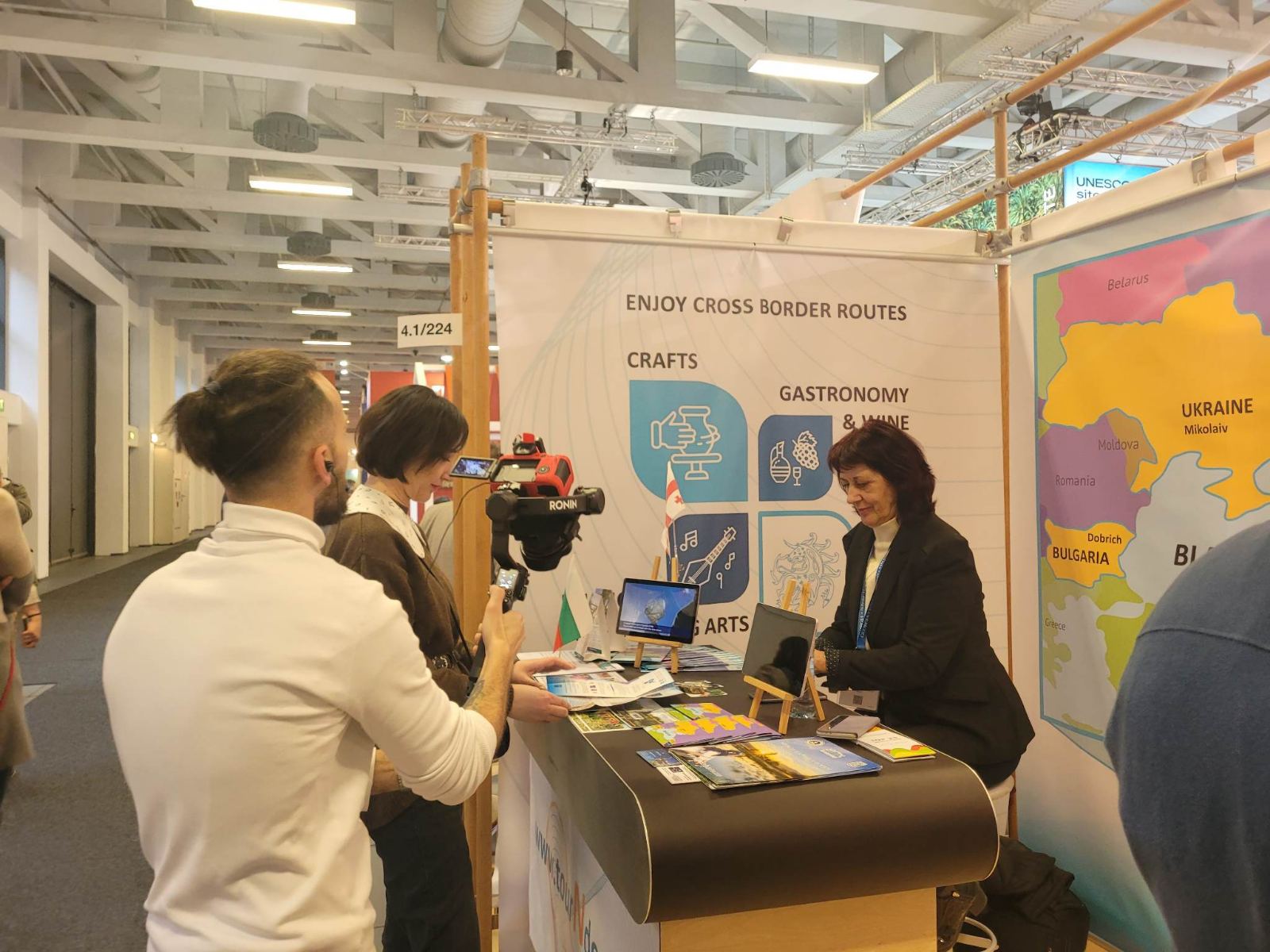
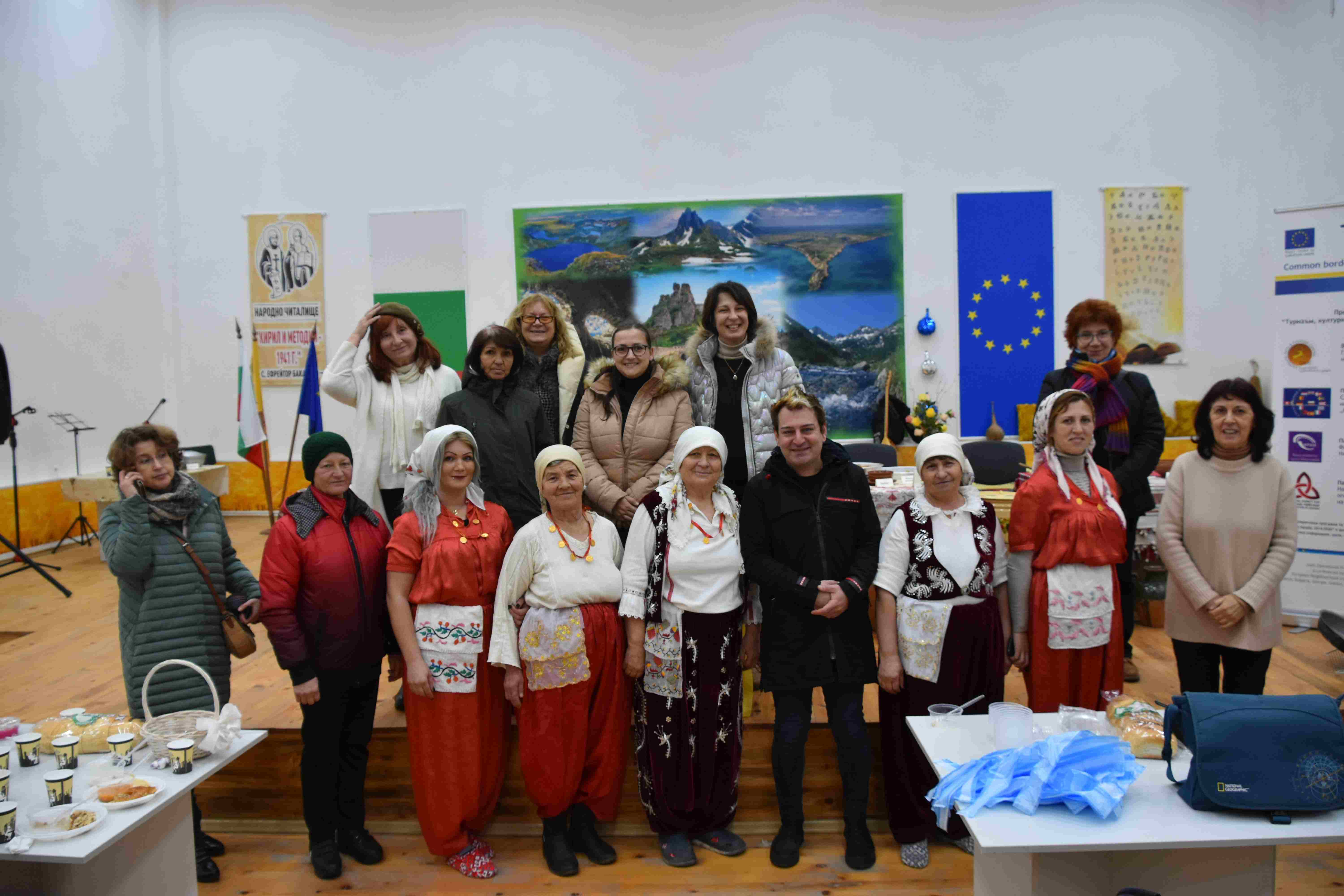
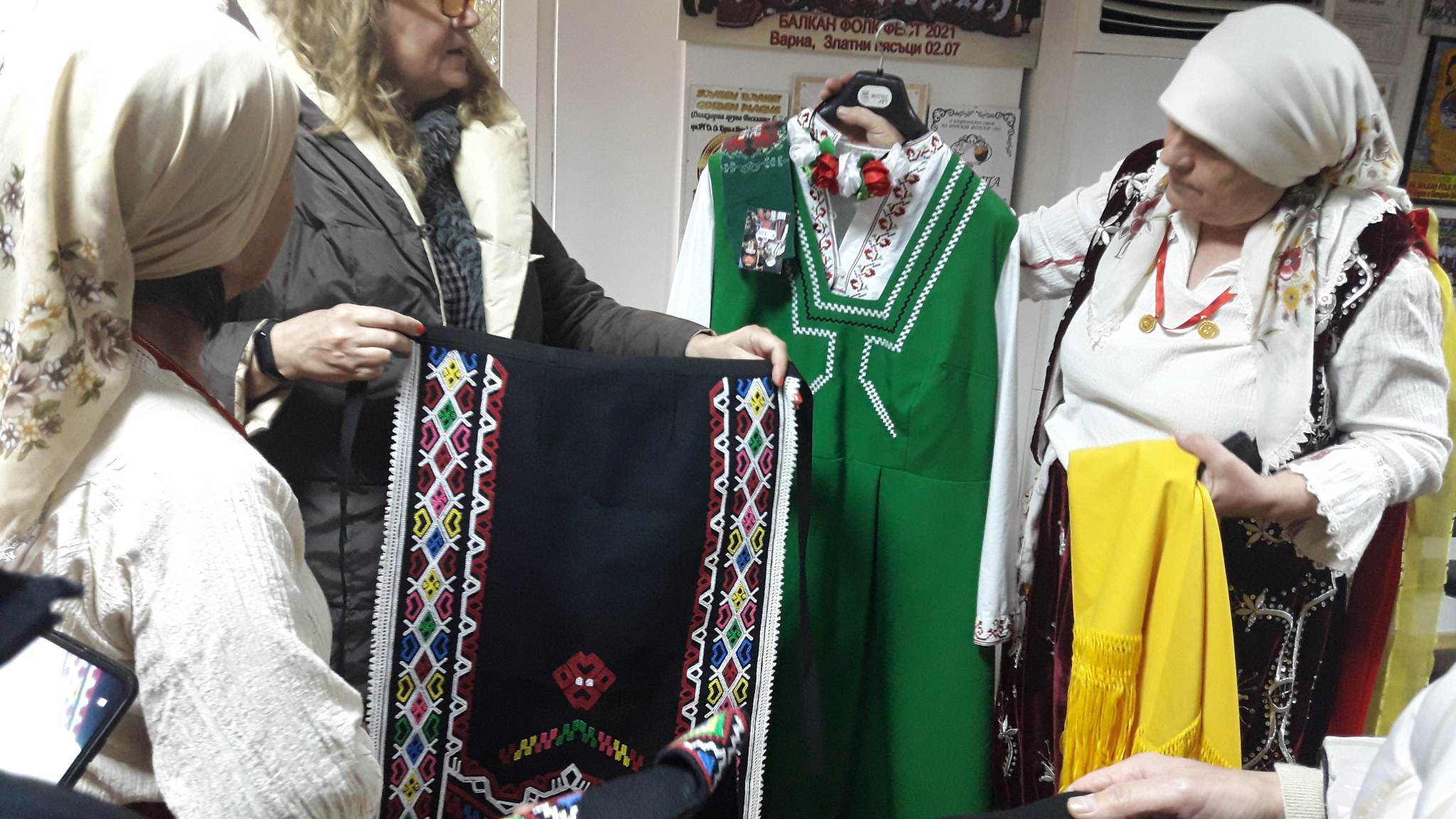
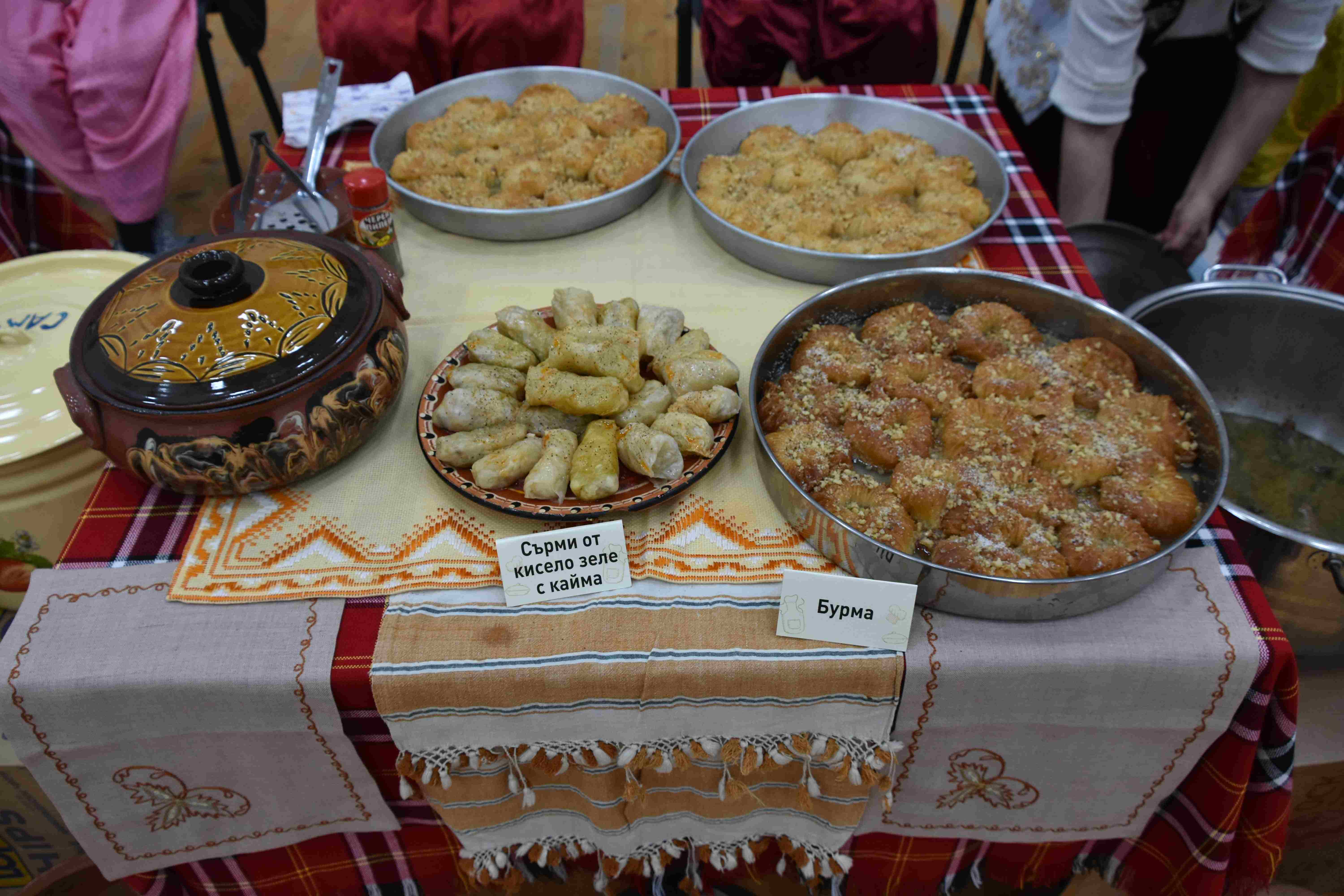
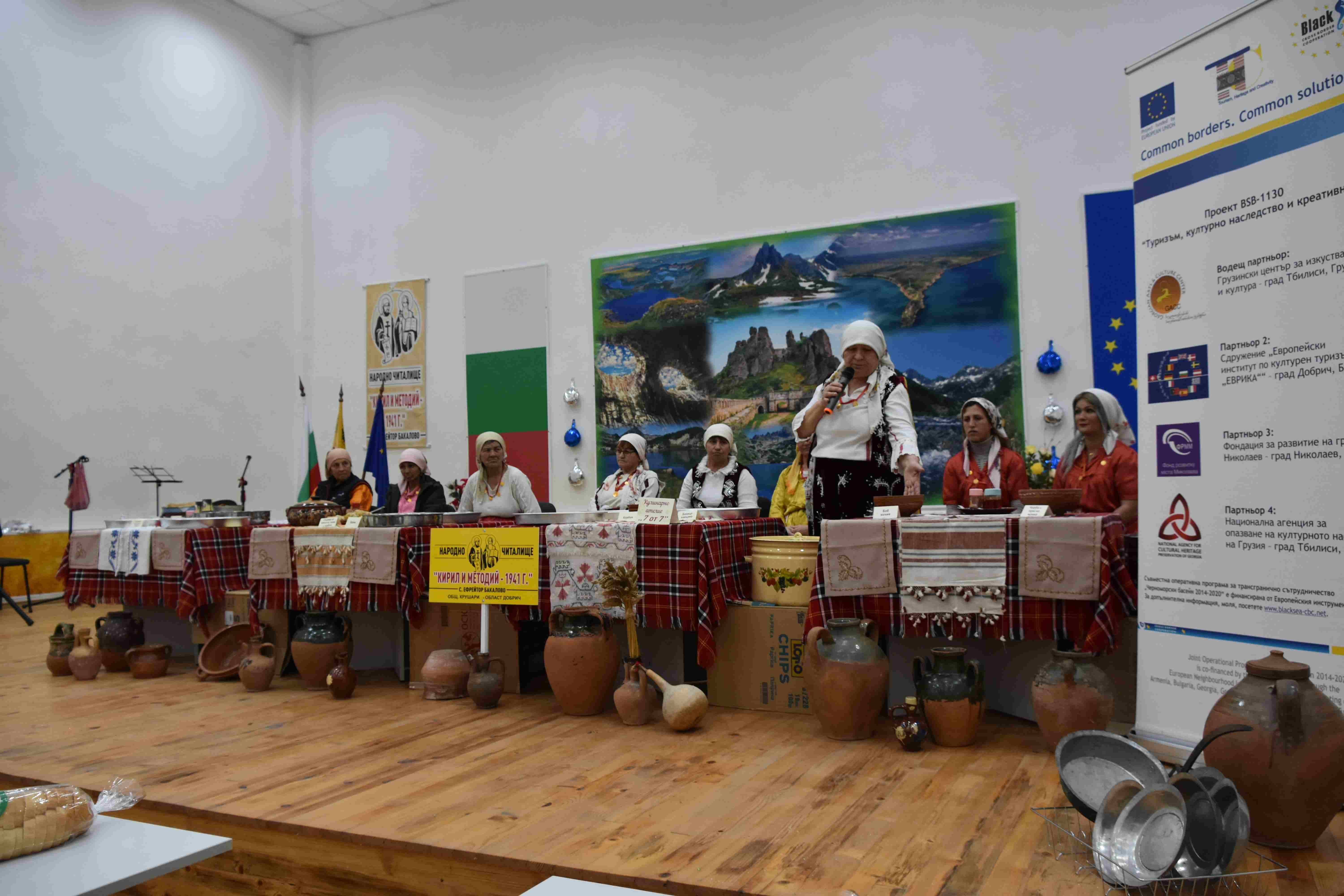


Comments